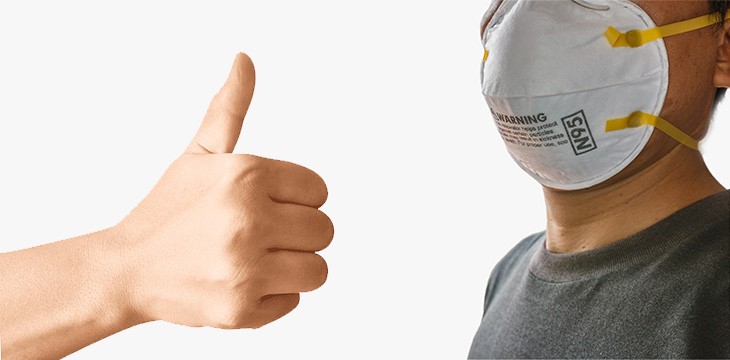|
Getting your Trinity Audio player ready...
|
As of February 10, there have been 42,760 cases of Coronavirus around the globe, with 1,013 of those cases resulting in death. With the high probability that you will have to be in a densely populated area like an airport or train station to get to the CoinGeek Conference in London, you might be wondering how you can reduce your chance of getting sick.
Here are a few facts regarding Coronavirus and tips that you should keep in mind that will help you reduce your chance of getting sick when traveling, especially at a time when sickness is running rampant across the globe.
Where does the virus thrive?
The Coronavirus thrives on living surfaces, although you should always practice good hygiene after coming into contact with items that several people touch, airplane seats, armrests, handrails, etc., it is not very likely that the virus will be living on those objects. Regardless, you should always wash your hands—and if that isn’t an option, use hand sanitizer—after coming into contact with those items.
How does the coronavirus spread?
Your greatest risk of catching the Coronavirus would be from physical contact with another person. That being said, it is best to avoid close contact with others, especially those who are sick, coughing, or sneezing. If you must sneeze or cough yourself, it is best to do this into the corner of your elbow, or even better, into a tissue or napkin that you can dispose of.
It is very common for viruses to spread from hand-to-hand. So once again, always make sure you wash your hands or use hand sanitizer after being near other people in densely populated areas. It is also important for you to avoid touching your face—especially areas near your eyes and mouth.
Should I wear a mask when I travel?
A surgical mask is not effective when it comes to fighting viruses, however, a respirator, like the 3M N95, is. A surgical mask does a good job of preventing the pathogens within your mouth from entering the air surrounding you, and they do an excellent job of keeping pollution out of your mouth and nose. However, a surgical mask is not very tight-fitting; the virus can easily travel around the mask.
If you are looking to protect your airways, you will want to use a respirator. A respirator is a lot thicker than a surgical mask, is tighter fitting, and was designed to protect the wearer from hazardous atmospheres, including dust, airborne microorganisms, hazardous fumes, vapors, and gases.
But keep in mind, with a respirator, you will most likely have a harder time breathing. Although it is great at keeping chemicals and infectious particles out of your airways, it also makes it harder for air to get into your airways.
Avoid handshakes for now
Aside from regularly washing and sanitizing your hands, it’s probably also prudent to skip shaking the hands of people you meet—for now, at least. Close personal contact such as touching or shaking hands is one of the primary paths for the spread of viral diseases like Coronavirus, influenza, and even common cold. Avoid getting in close contact with anyone who has fever or cough—but if you do, clean your hands immediately using alcohol-based hand rub or soap and water.
That said, attendees of the CoinGeek Conference in London are encouraged to avoid hand-shaking and other forms of human contact. This is to protect everyone against all viruses, as this is the cold and flu season in London. Having a no-contact policy will make it difficult for any virus to spread at the event. Calvin Ayre, founder and chairman of Ayre Group, said:
“I generally hate shaking hands any time of the year and usually rush to wash them afterwards. This is particularly important now that we are all attending an event in London in the middle of cold and flu season and good training in case the corona virus comes to where we are living in the future. I look forward to an event where this is agreed in advance that this is not necessary and we can all just network and enjoy the presentations. I think this should become a global standard as the hand shake is an anachronism from a time when we did not understand the danger of large scale human to human contact for no real purpose.”
Better safe than sorry
Unless you are traveling to or from an area where several people have been infected, there is a low probability that you catch Coronavirus while in transit. If you take a few precautions, such as maintaining a safe distance between others in densely populated areas and washing/sanitizing your hands shortly after coming into contact with people, then you will significantly reduce your chance of getting sick when traveling to CoinGeek London.

 02-25-2026
02-25-2026 




